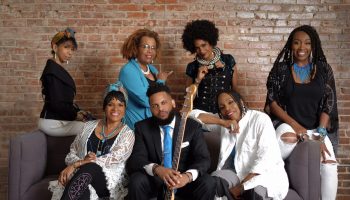
Kaitlyn Finchler
Contributing Writer
It’s one thing to make a change — practice a hobby, change what foods to eat or change the time on a morning alarm — but it’s another to carry new practices into the rest of one’s life.
Subagh Singh Khalsa — founder and former co-director of the Mystic Heart Meditation Program, a Department of Religion initiative at Chautauqua, and meditation teacher of 50 years — will deliver his lecture “Healing Ourselves and Healing the World” at 2 p.m. today in the Hall of Philosophy for the Week Three Interfaith Lecture Series theme “Contemplation: Meditation, Prayer and Silence.”
“I want to try to be personal about (the lecture), kind of intimate about it if possible,” Khalsa said. “I want to describe meditation as something that is extremely simple, because it really is the process of experiencing whatever it is we happen to be experiencing at any particular moment.”
However, Khalsa said that also involves not doing anything about the experience. Not doing anything to make it better to avoid discomfort, but directly experiencing existence from moment to moment.
“That’s what I mean about dealing with some kind of equanimity in the face of the various ups and downs of life,” Khalsa said. “It’s a simple thing because it’s a matter of simply listening, simply observing, simply feeling what you’re feeling.”
At the same time, Khalsa said meditation can be hard. It’s “simple as can be,” but takes practice.
“It’s hard to set aside your ego. It’s hard to set aside your fears. It’s hard to set aside your desires. It’s hard to set aside your prejudices,” he said. “But it’s only when we actually do that, that we can have a direct experience of reality.”
Khalsa also plans to speak to how useful and helpful meditation is. In his personal life, he has wondered if he was going to make the right decision; or as a woodworker and sculptor, if he was the right person for the job or what the piece should look like.
“What I have found almost invariably is that when I pose a question to myself and don’t struggle with the answer, but just sort of allow that question to be there while I meditate, invariably an answer will pop into my head,” he said. “I’ll know what to do. I’ll know the design of my work. I’ll know if it’s a good decision or a bad decision to make some moves in life.”
Beyond this, Khalsa said one of the “most wonderful” things about meditation and its practices is how it “enables us to exist in the world with other people.”
“A truly peaceful person, when in relationship to other people or other situations, can bring that peace into the situation, into the circumstances, and that we can become a healing presence in the world,” he said.
Khalsa said “we live in a crazy world,” and in this world it’s very easy to become angry, alienated, anxious or fearful.
“Most everybody who’s going to hear this talk lives in pretty comfortable situations personally,” Khalsa said. “But more and more we hear about everyday people, everyday prosperous, successful people who are suddenly subjected to very challenging situations. We’re all going to face illness and death or accidents. We’re all going to face the loss of loved ones.”
Khalsa believes mediation is also necessary for younger generations, too. He said “we’re creating a generation of young people” who desperately and constantly need diversion and entertainment and who are fearful of their own future.
“Mediation is not going to solve the world’s economic problems, political problems or social problems,” he said. “But, meditation will allow each of us to approach those problems in a way that is healing for us. If we are in almost any profession or occupation where we’re interacting in any way with the larger world, the public … if we can approach with that attitude of peace and ultimately an attitude of gratitude, rather than an attitude of fear and apprehension, then whatever we do will come out better.”




